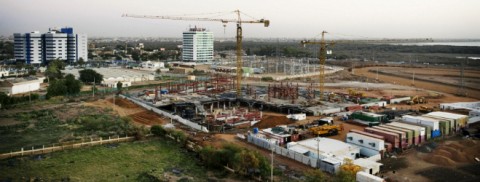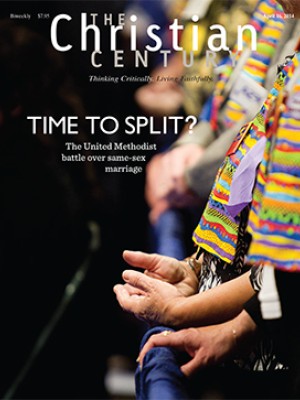Economic boom in Africa

When I lecture on global Christianity, I am sometimes asked whether, in retrospect, I would revise what I wrote many years ago in books like The Next Christendom. Usually my answer is no.
But in one critical area conditions are changing so quickly as to demand rethinking. Whereas I (and others) once presented Africa as a region of extreme poverty and deprivation, we now have to take account of economic development that in some regions is so rapid as to amount to a boom. We can only begin to outline the religious consequences.
At the turn of this century, sub-Saharan Africa was an economic nightmare. During the 1990s, the region managed annual GDP growth of only 2.2 percent—dreadful for such a poor region—while inflation ran at 27 percent. The AIDS epidemic was out of control, and much of central Africa was embroiled in the mass slaughter of the Congo wars. Civil conflicts threatened to ignite elsewhere, above all in Nigeria. News stories from Africa customarily focused on ruthless militias, child soldiers, blood diamonds, and mass rape.
Read our latest issue or browse back issues.
So hopeless did conditions appear that scholars invented the category of the Fourth World to describe a region that could not even keep up with the Third. African religion, it seemed, had to be understood as an attempt to seek in the spiritual realm some ray of hope that was so conspicuously lacking in the material world.
At first sight, the African world of 2014 does not look very different. South Sudan, Mali, and the Central African Republic remain bywords for ethnic violence and mass destruction, while terrorism, corruption, and dictatorial regimes all flourish. Even in peaceful regions, stable and honest government is a distant dream. Wise city-dwellers know better than to count on power supplies being regularly available, and they constantly face the hazard of violent crime.
Yet amid the familiar narratives of misery and violence are startling signs of growth and prosperity. Partly, this is a consequence of insatiable global demand (headed by the Chinese) for minerals and natural resources. But services and manufacturing are also growing. To quote the Economist’s John O’Sullivan: “In the past decade, only the bloc of developing Asian economies, led by China, has grown faster than Africa. . . . Four of the world’s six fastest-growing economies in 2014 will be in sub-Saharan Africa.”
Despite its endemic problems with religious conflict, Nigeria is doing very well and will soon be the continent’s largest economy. Suddenly, Ethiopia’s economy is a model to be envied. Daring investors now see rich opportunities throughout the region. Yes, progress is patchy and uneven, but compared to conditions in 2000, Africa is radically different. These changes have broad social consequences, not least in terms of bolstering middle-class and upper-middle-class groups. Ideally, those groups—being literate and globally minded—should increasingly press for better government and public services.
What will be the impact of these transformations on African Christianity? Let me begin by saying what the effects will not be. We will not see millions of Africans deciding overnight that now that they have plenty of consumer goods they no longer need the consolations of religion, Christian or otherwise. That did not happen in Asian Tigers like South Korea, and it won’t in the new African Lions. A lot of the new disposable income will be invested in churches.
The main impact on Christian churches will likely fall into the category of “more of the same.” For some years now, older independent churches have faded in the face of competition from new denominations rooted in global Pentecostalism that emphasize the blessings of material prosperity. Some tailor their message to aspiring professional and entrepreneurial groups, which will become much more numerous in the coming decade. Charismatic megachurches should boom.
Prosperity teachings never lack for critics. Nevertheless, such teachings usually include important practical lessons for coping with the new globalized world—lessons, for example, in the responsible use of debt and credit. Latin American precedents suggest that these churches also provide a vital organizational focus for campaigns for social and political reform and civic improvement. Expect more, rather than less, religious politics.
Other likely effects lie in the longer term. Increasingly, the demand for labor should draw more women into full-time paid employment, particularly in emerging service sectors. Expect to see more Western-style debates over issues of gender and sexuality, although framed strictly in terms of African traditions. What a pleasure it would be to see Africa’s churches enduring some of the familiar discontents of prosperity.






